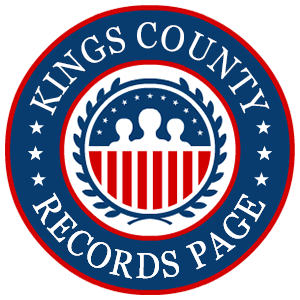Run a free Kings County warrant search to ensure there are no issues that may impact your freedom. Warrants are legal documents that grant the government the authority to arrest you or search for something, even if it is located in a private place.
Warrants are issued by courts of law when defendants fail to appear or make ordered payments and by law enforcement agencies for criminal investigation purposes. These officials may even post information about warrants in online databases that are publicly accessible and free to look up.
This step-by-step resource empowers citizens to effectively perform a warrant search in Kings County, New York.
An Overview of Locating Free Information on Kings County Warrants
When you are looking for free information on Kings County warrants, it’s important to know what your rights are as a citizen. You have the right to not be searched or seized (arrested) by the government without probable cause. This means the government needs to have sufficient evidence that it is more likely than not that an offense has been committed or is being committed.
A warrant is a legal document that sets out the probable cause requirement that governments must meet. Because it is a document created by a government agency, court, or law enforcement, they are subject to public records laws.
The New York Freedom of Information Law sets out the policy that the government should be transparent and the public has the right to know what its government is doing.1 New York state and local agencies are required to set rules for members of the public to inspect and copy public records.
All records maintained by a New York government agency are public and available for inspection and copying by the public unless a specific exception applies. Because warrants pertain to law enforcement investigations, they are subject to the law enforcement purpose exception.
The law provides that records compiled for law enforcement purposes are excepted from the freedom of information law to the extent that disclosure would interfere with investigations, deprive a person of a right to fair trial, identify a confidential source, reveal investigative techniques, or endanger the life of a person.
Search warrants are legal orders issued and executed by a law enforcement agency to legally authorize them to search a private place for specific evidence potentially linked to a crime. The nature of search warrants is that they are exclusively created to further a criminal investigation and would therefore likely never be subject to public disclosure.
Arrest warrants would likely not interfere with a criminal investigation, as they are usually the end result of an investigation. Some arrest warrants may, however, contain the identity of a confidential source used as a witness to a crime.
If an arrest warrant contains information that would otherwise be excepted from disclosure, the law enforcement agency has the discretion to redact that information and produce the remainder of the record.
The records custodians for warrants are courts of law and law enforcement agencies. Courts issue several different types, including bench warrants and capias pro fine warrants. One of the custodians is the New York City Police Department.2
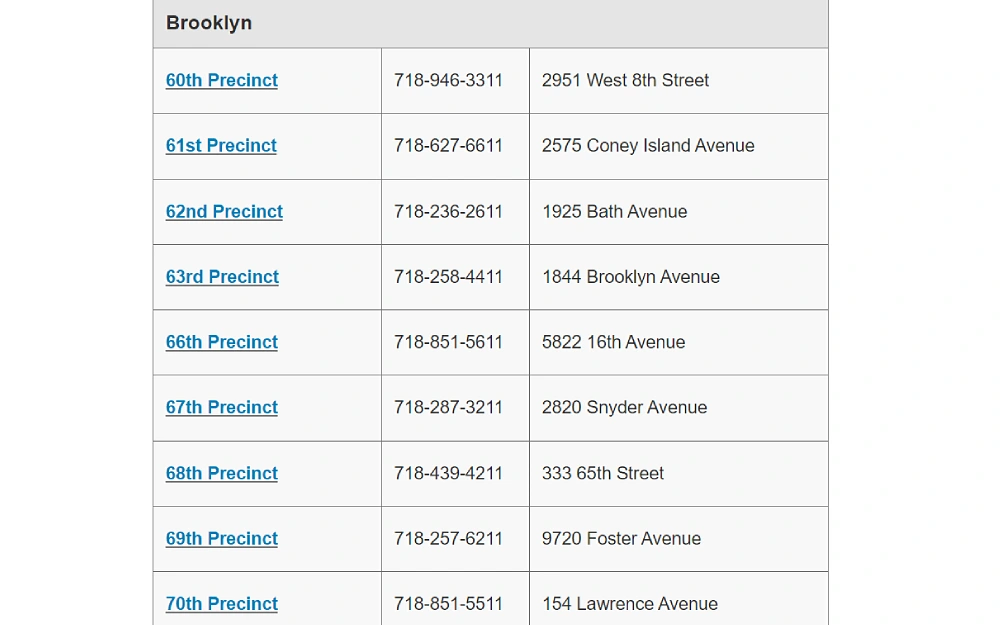
Courts may elect to provide online lists of individuals with warrants issued by the court to notify offenders that they should report as soon as possible. Offenders may even have the opportunity to pay court fines online to avoid being arrested for the outstanding warrant.
Law enforcement agencies may elect to post warrant search tools and most wanted lists. This can help the public be aware of dangerous persons who should be in custody but are actively evading capture.
If you are performing a warrant search you should know, at the least, the name of the offender. When searching through an online method or contacting a court or police department correctly, you will be asked to provide a first and last name, and sometimes even a date of birth or address. This will help you narrow the search to the most accurate results and avoid wasting your or an agency’s time.
Learn how you can look up Kings County warrants below.
How To Conduct a Stress-Free Kings County Warrant Search at No Cost
When searching for a warrant on the county level it makes sense to start with county-wide government agencies. County agencies offer a broader search than municipal level agencies and often have more resources. Generally, a county sheriff’s office or district court will offer a free online search tool.
However, Kings County, New York, does not have an agency that offers such resources. Interested parties cannot look up warrant information online. The Kings County Supreme Court maintains criminal cases on the county level, and interested persons must contact the court’s clerk for more information.
Kings County Supreme Court
320 Jay Street
Brooklyn, New York 11201
Phone: 347.296.1076
New York City is within Kings County and some of its agencies offer warrant information. The New York Finance Department allows members of the public to look up traffic and parking violations.3
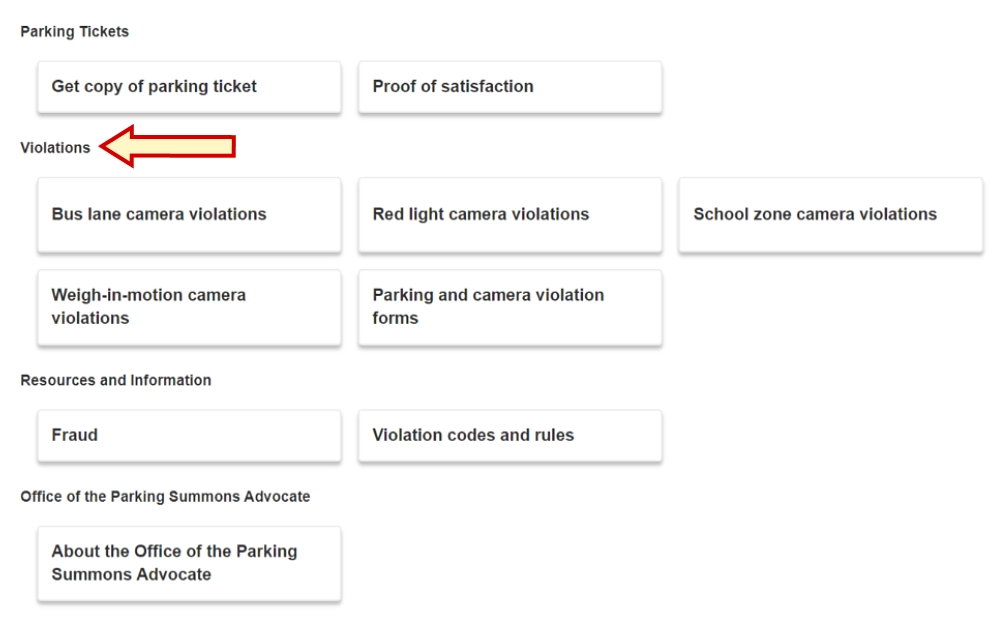
Use the Camera Violation Search to review citations.4 Searches can be performed by ticket number or plate number.
Kings County Sheriff’s Office
210 Joralemon St.
Brooklyn, New York 11201
Phone: 718.488.3545
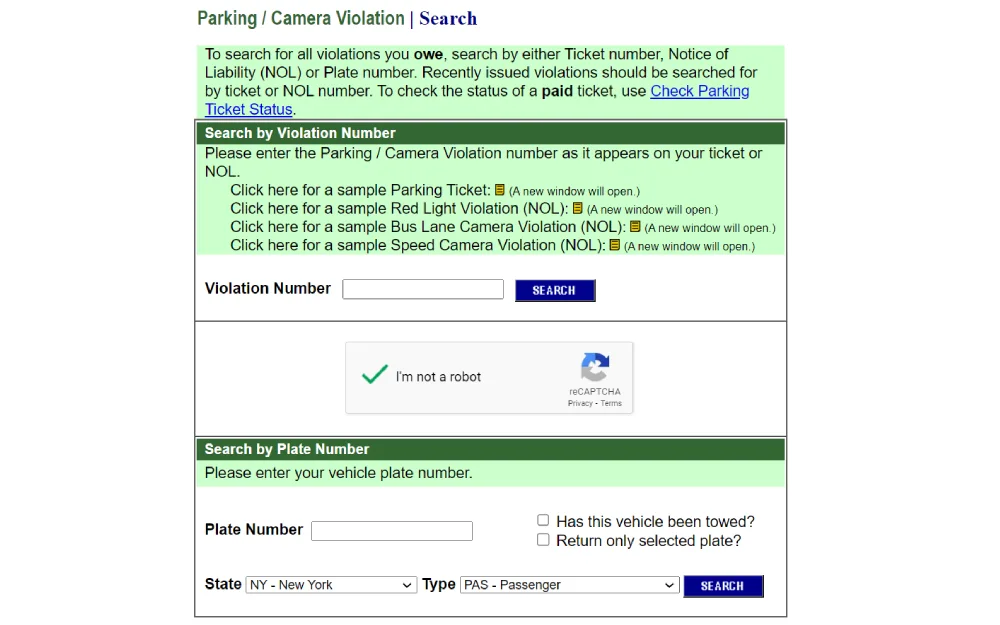
The City of New York government provides instructions on how you can get information about arrest warrants issued in the city.5
You must contact one of the New York City Police Department precincts or contact the Criminal Court information line at 646.386.4900.
How To Determine if Someone Has a Warrant Anywhere in New York
In the event that a search for warrants in Kings County or New York City is unsuccessful, a statewide search may be able to assist. There are instances where a county or local agency may not offer many resources to aid the public in finding warrant information easily. There are also instances where a warrant may have been issued in a different location in the state.
Regardless of the reason, if a warrant was issued in New York, you may use the Unified Court System to search the associated criminal case.6 Users can search by case or summons number, or by the defendant’s name. You must enter at least the first two characters of both first and last names.
The search also allows you to narrow results by county. You can elect to search all Kings County courts or search ‘All Courts’ in the state of New York.
After results are generated click on the corresponding case or summons number.
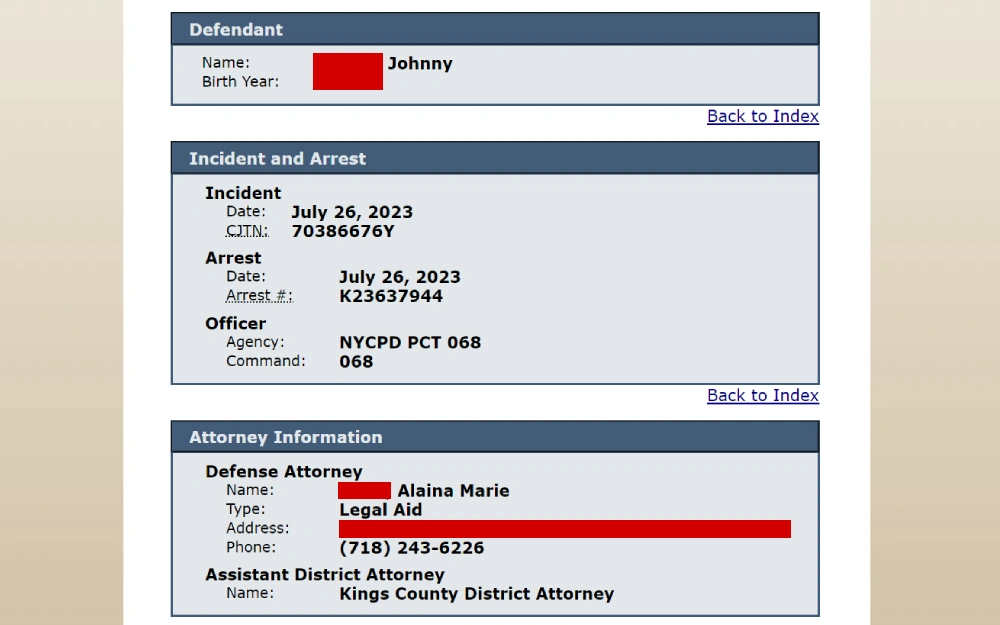
This will afford you the opportunity to view the pending or resolved charges. On the left side of the case page, select ‘Charges’ to view a description of the charge.
Warrant Types & Their Meanings
You may have heard a warrant called different types of names. Courts tend to issue more variety of warrants than law enforcement agencies, however, all essentially have one of two functions. They are issued and executed to effectuate an arrest of a person or a search of a thing.
Find out what the different warrant types are and their meanings below:
Arrest Warrants: An arrest warrant is created by a sworn law enforcement officer and signed by a judge that gives the government the authority to arrest a person for allegedly committing a crime.
Bench Warrants: Judges issue these warrants to arrest a person who does not appear for their appointed court hearing.
Probation and Parole Violation Warrants: Probation officers request these warrants when a persons fails the conditions of the program, and a parole board requests these warrants when an inmate violates the terms of their release.
Traffic Warrants: Traffic citations rarely accompany an arrest, but they can when a driver commits a dangerous moving violation on the road.
Child Support Warrants: When a parent who is ordered to pay child support fails to do so, child services and courts issue warrants for the parent’s arrest.
Capias & Capias Pro Fine Warrants: Issued by a judge to arrest a defendant when they do not pay the fine associated with their conviction.
Fugitive Warrants: When an inmate escapes prison or a dangerous criminal evades capture, these warrants will be issued for their arrest. You may often find these individuals on most wanted lists.
Search Warrants: Legal orders that grant the government the authority to search a private place for specific evidence of a crime.
How To Get a Warrant Dropped or Resolved in Kings County
There are different ways to address the serious issue of active warrants. When someone you know has an active warrant, you can inform them in case they do not know. It might save them from additional charges, and give them the chance to resolve the issue before it gets out of hand.
Do not inform a person, even if you know them well if you think doing so would be dangerous. Contact a local law enforcement agency instead.7
When there is an active warrant out for your arrest, speaking with a criminal defense attorney is likely your best option. They may help you get your affairs in order and procure a bond so you can be free while the criminal case is pending. You may also be able to get a low level warrant quashed by contacting the court and paying the applicable fines.
If you are curious, perform a Kings County warrant search today; use the information in this resource to help you obtain peace of mind.
References
1Open Government. (2023, November 3). Public Officers Law – Article 6 Section 84-90: Freedom of Information Law. Retrieved January 22, 2024, from <https://opengovernment.ny.gov/system/files/documents/2023/11/foil-law-text-11032023.pdf>
2New York City Police Department. (n.d). Precincts. Retrieved January 22, 2024, from <https://www.nyc.gov/site/nypd/bureaus/patrol/precincts-landing.page>
3New York City Police Department. (n.d). NYC Department of Finance. Retrieved January 22, 2024, from <https://www.nyc.gov/site/finance/index.page>
4New York City Government. (n.d). Parking / Camera Violation Search. Retrieved January 22, 2024, from <https://nycserv.nyc.gov/NYCServWeb/PVO_Search.jsp>
5New York City Government. (n.d). Arrest Warrant. Retrieved January 22, 2024, from <https://portal.311.nyc.gov/article/?kanumber=KA-01400>
6New York State Unified Court System. (n.d). Courts: Web Criminal. Retrieved January 22, 2024, from <https://iapps.courts.state.ny.us/webcrim_attorney/AttorneyWelcome>
7New York City Police Department. (n.d). Crime Stoppers. Retrieved January 22, 2024, from <https://www.nyc.gov/site/nypd/services/see-say-something/crimestoppers.page>
